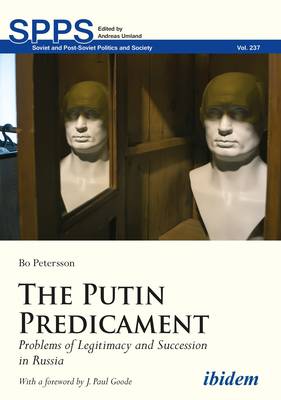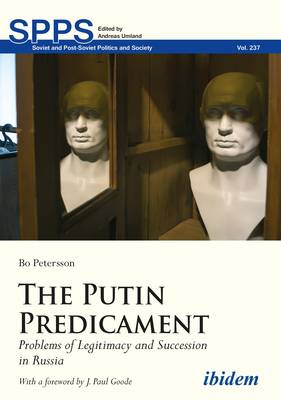
Vous voulez être sûr que vos cadeaux seront sous le sapin de Noël à temps? Nos magasins vous accueillent à bras ouverts. La plupart de nos magasins sont ouverts également les dimanches, vous pouvez vérifier les heures d'ouvertures sur notre site.
- Retrait gratuit dans votre magasin Club
- 7.000.000 titres dans notre catalogue
- Payer en toute sécurité
- Toujours un magasin près de chez vous
Vous voulez être sûr que vos cadeaux seront sous le sapin de Noël à temps? Nos magasins vous accueillent à bras ouverts. La plupart de nos magasins sont ouverts également les dimanches, vous pouvez vérifier les heures d'ouvertures sur notre site.
- Retrait gratuit dans votre magasin Club
- 7.000.0000 titres dans notre catalogue
- Payer en toute sécurité
- Toujours un magasin près de chez vous
36,95 €
+ 73 points
Description
Using the Russian president's major public addresses as the main source, Bo Petersson analyzes the legitimization strategies employed during Vladimir Putin's third and fourth terms in office. The argument is that these strategies have rested on Putin's highly personalized blend of strongman-image projection and presentation as the embodiment of Russia's great power myth. Putin appears as the only credible guarantor against renewed weakness, political chaos, and interference from abroad--in particular from the US. After a first deep crisis of legitimacy manifested itself by the massive protests in 2011-2012, the annexation of Crimea led to a lengthy boost in Putin's popularity figures. The book discusses how the Crimea effect is, by 2021, trailing off and Putin's charismatic authority is increasingly questioned by opposition from Alexei Navalny, the effects of unpopular reforms, and poor handling of the COVID-19 pandemic. Moreover, Russia is bound to head for a succession crisis as the legitimacy of the political system continues to be built on Putin's projected personal characteristics and--now apparently waning--charisma, and since no potential heir apparent has been allowed on center stage. The constitutional reform of summer 2020 made it possible in theory for Putin to continue as president until 2036. Yet, this change did not address the Russian political system's fundamental future leadership dilemma.
Spécifications
Parties prenantes
- Auteur(s) :
- Editeur:
Contenu
- Nombre de pages :
- 200
- Langue:
- Anglais
- Collection :
Caractéristiques
- EAN:
- 9783838210506
- Date de parution :
- 17-11-21
- Format:
- Livre broché
- Format numérique:
- Trade paperback (VS)
- Dimensions :
- 145 mm x 208 mm
- Poids :
- 249 g







